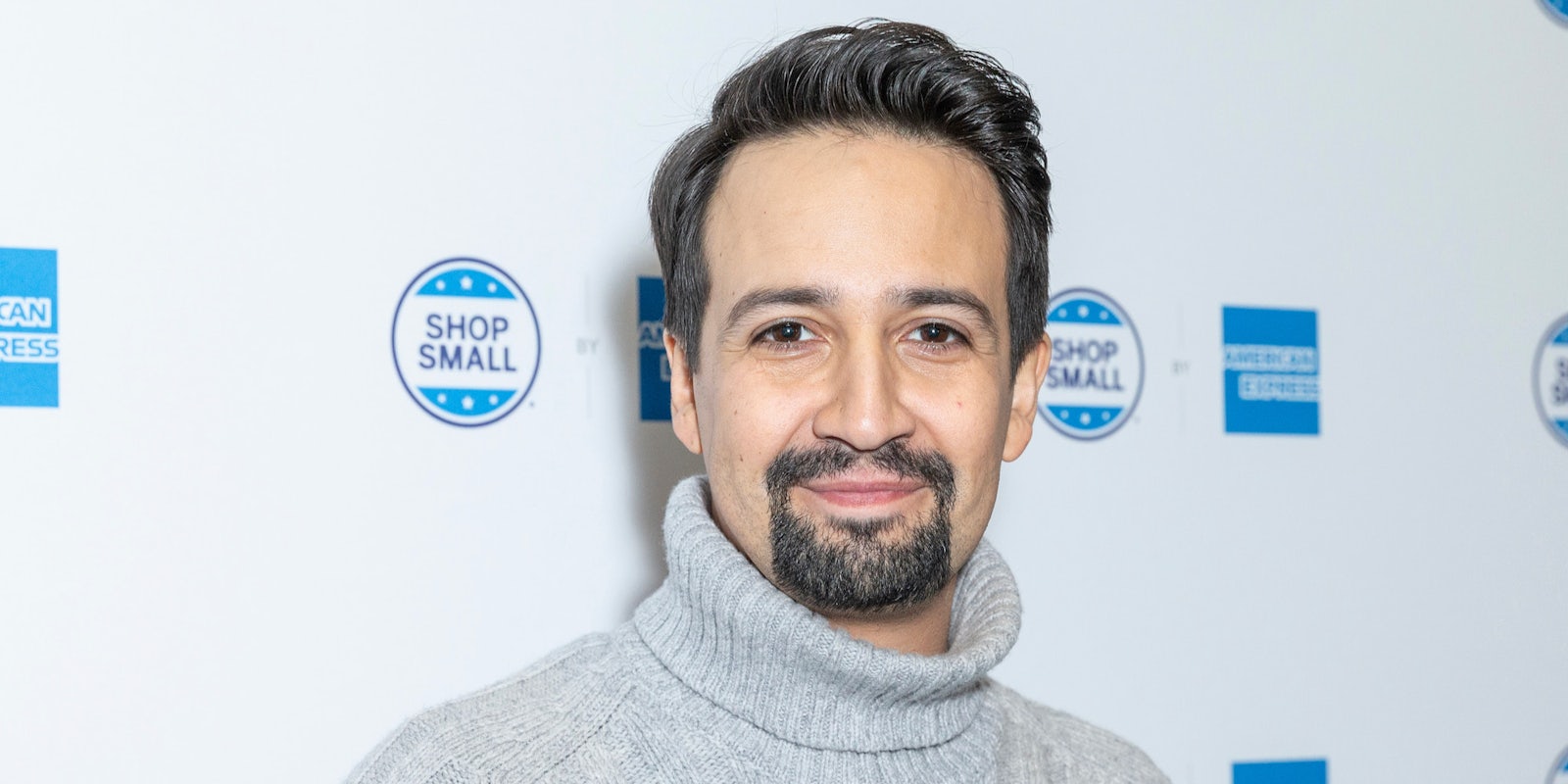In the days following its debut in theaters and on HBO Max, In the Heights sparked plenty of criticism around colorism and a lack of Afro-Latinx representation in the film. Now Lin-Manuel Miranda, who created the In the Heights musical and had a small role in the film adaptation of it, is acknowledging that criticism and vowed to do better in future projects.
On Monday night, Miranda posted an apology written in the Notes app to his social media accounts and noted that the reason he wrote In the Heights in the first place was because he “didn’t feel seen.”
“I’m seeing the discussion around Afro-Latino representation in our film this weekend and it is clear that many in our dark-skinned Afro-Latino community don’t feel sufficiently represented within it, particularly among the leading roles,” Miranda wrote. “I can hear the hurt and frustration over colorism, of feeling still unseen in the feedback. I hear that without sufficient dark-skinned Afro-Latino representation, the work feels extractive of the community we wanted so much to represent with pride and joy. In trying to paint a mosaic of this community, we fell short. I’m truly sorry.”
Quiara Alegría Hudes, who wrote In the Heights’ screenplay and wrote the book for In the Heights, co-signed Miranda’s apology while director Jon M. Chu retweeted it.
The response to Miranda’s apology was more mixed. While some praised Miranda for his apology, others took issue with the people behind the film not noticing it sooner—especially when it was a criticism that’s been around since the musical came out.
“But didn’t you receive this same ‘feedback’ when it was a play?” @chris_notcapn wrote. “Why are you acting brand new? I’m confused.”
The conversations around the lack of Afro-Latinx representation—especially for dark-skinned actors—aren’t new. A 2016 feature from HuffPost highlighted the issues that many Afro-Latinx actors face, including not being seen as Latinx because of their skin color or having to choose one part of their identity over the other because Hollywood’s idea of Latinx actors only involved people with lighter skin.
It was especially a concern around In the Heights, which is set in the New York City neighborhood of Washington Heights and has a huge Afro-Latinx population, long before the movie debuted. The majority of the main cast are light-skinned or white-passing Latinx actors while the few Afro-Latinx actors among them (including Leslie Grace, who plays Nina Rosario) have lighter skin. The film was also criticized for cutting a plot from the original musical in which Kevin Rosario (Jimmy Smits) disapproves of Benny (Corey Hawkins) wanting to date his daughter Nina because it was an instance where In the Heights could’ve had a conversation about racism and Kevin being anti-Black.
In a now-viral viral interview from The Root which kicked off much of the discourse among fans, Chu and the cast were asked about the lack of darker-skinned Afro-Latinx actors among the cast.
“I didn’t realize until making this movie that I didn’t really get to see myself or people that looked like my siblings, that are darker than me, on-screen,” Grace said. “I hope that this is cracking that glass ceiling. Because I do hope to see my brothers and sisters that are darker than me lead these movies.”
“I’m trying to hold space for both the incredible pride in the movie we made and be accountable for our shortcomings,” Miranda wrote. “Thanks for your honest feedback. I promise to do better in my future projects, and I’m dedicated to the learning and evolving we all have to do to make sure we are honoring our diverse and vibrant community.”
Read Miranda’s full statement below.
I started writing In The Heights because I didn’t feel seen.
And over the past 20 years all I wanted was for us—ALL of us—to feel seen.
I’m seeing the discussion around Afro-Latino representation in our film this weekend and it is clear that many in our dark-skinned Afro-Latino community don’t feel sufficiently represented within it, particularly among the leading roles.
I can hear the hurt and frustration over colorism, of feeling still unseen in the feedback.
I hear that without sufficient dark-skinned Afro-Latino representation, the work feels extractive of the community we wanted so much to represent with pride and joy.
In trying to paint a mosaic of this community, we fell short.
I’m truly sorry.
I’m learning from the feedback, I thank you for raising it, and I’m listening.
I’m trying to hold space for both the incredible pride in the movie we made and be accountable for our shortcomings.
Thanks for your honest feedback. I promise to do better in my future projects, and I’m dedicated to the learning and evolving we all have to do to make sure we are honoring our diverse and vibrant community.
Siempre, LMM




 (@chefjoseandres)
(@chefjoseandres) 